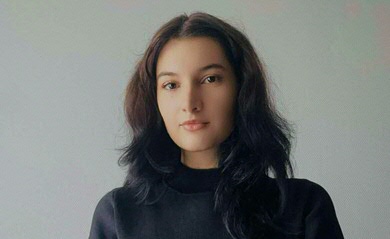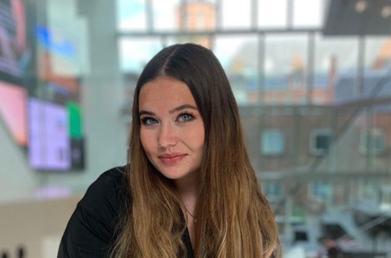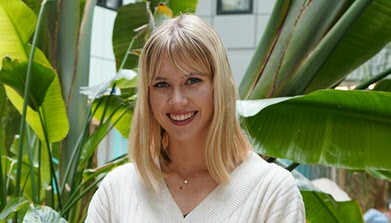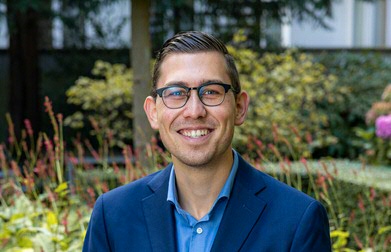
What role does communication play in addressing societal challenges, such as environmental obstacles, the rise of AI-tools, and the spread of misinformation? How can the analysis of conversations between doctors or doctors and patients improve patient care? How can you measure the effectiveness of audiovisual material in strategic communication?
| Semesters | ||||
|---|---|---|---|---|
| CoursesCourse Catalog > | 1a | 1b | 2a | 2b |
| Challenges to Health Communication (5 EC, optional) | ||||
| Communication & Education (5 EC, optional) | ||||
| Designing Interventions in Environmental Communication (5 EC, optional) | ||||
| Navigating Communication Studies: From Topics to Thesis (5 EC, optional) | ||||
| Corporate and Organisational Communication in the Real World (10 EC) | ||||
| Analysing Discourse in Society (5 EC) | ||||
| Evidence-Based Evaluation in Communication Studies (5 EC) | ||||
| From Classroom to Career (incl. Placement) (15 EC) | ||||
| Masterscriptie CIW (15 EC) | ||||
| Programme options |
|---|
| Vakken mastertrack Communicatiewetenschappen (specialization) Het vakkenaanbod van de mastertrack Communicatiewetenschappen is aan verandering onderhevig. Bekijk Ocasys voor de meest actuele stand van zaken. |
Studeren in het buitenland is mogelijk, maar wordt sterk afgeraden vanwege studievertraging en beperkt vakkenaanbod.
| Specific requirements | More information |
|---|---|
| previous education |
Students with a Bachelor's degree in Communication and Information Studies or Communication Studies are directly admissible to this Master's track. Additionally, students with a Bachelor's degree from the University of Groningen in one of the following programmes:
are also admissible to the Master's track once they have successfully completed the Faculty Minor or a pre-Master's programme (30 - 60 ECTS) in Communication and Information Science at the UG. Students with a BA from a research university can, after deliberation and approval by the Admission Board, be admitted to the Master's track. The same is true for students with a BA in Communication Studies or a related field from a university of applied sciences. These students will most likely be asked to complete a pre-Master's of max. 60 ECTS before they can be admitted. It is possible to start pre-Master's courses during your Bachelor's. Students with a non-Dutch qualification can follow the admission procedure, which is published on https://www.rug.nl/education/application-enrolment-tuition-fees/admission/procedures/ |
| language test |
Additional requirements English: A VWO diploma or a subject certificate for VWO English (mark 6 or higher), minimum requirement of TOEFL iBT 90 (with a minimum of 21 on all items), or IELTS 6.5 (with a minimum of 6 on all items). Cambridge C1 Advanced or C2 Proficiency. International students will have to satisfy an additional Dutch language requirement, which can be met by passing the State Examination in Dutch as a Second Language (NT2, programme II). This examination guarantees Dutch proficiency at CEFR level B2. However, Dutch proficiency at CEFR level C1 or higher is recommended. |
| other admission requirements |
Ben je niet rechtstreeks toelaatbaar? Dien dan een verzoek tot toelating in bij de toelatingscommissie vóór 1 augustus (om per 1 september te beginnen). Je kunt dit verzoek via e-mail indienen: sec-millc rug.nl. Vermeld je vooropleiding, voorkeur mastertrack en je adresgegevens. Wij adviseren in alle gevallen eerst contact op te nemen met de studieadviseur CIW. |
| Study programme | Organization | Transition |
|---|---|---|
| Communicatie | All Universities of applied sciences | Via a pre-master with a maximum of |
| Study programme | Organization | Transition |
|---|---|---|
| Communicatie | Hanze University Groningen, University of Applied Sciences | Via a pre-master with a maximum of |
| Study programme | Organization | Transition |
|---|---|---|
| English Language and Culture | University of Groningen |
Additional requirements with a maximum of With a Faculty Minor in Communication and Information Studies (30 ECTS) and/or a pre-Master's programme (30-60 ECTS) |
| European Languages and Cultures | University of Groningen |
Additional requirements with a maximum of With a Faculty Minor in Communication and Information Studies (30 ECTS) and/or a pre-Master's programme (30-60 ECTS) |
| Linguistics | University of Groningen |
Additional requirements with a maximum of With a Faculty Minor in Communication and Information Studies (30 ECTS) and/or a pre-Master's programme (30-60 ECTS) |
| Dutch Language and Culture | University of Groningen |
Additional requirements with a maximum of With a Faculty Minor in Communication and Information Studies (30 ECTS) and/or a pre-Master's programme (30-60 ECTS) |
| Information Science | University of Groningen |
Additional requirements with a maximum of With a Faculty Minor in Communication and Information Studies (30 ECTS) and/or a pre-Master's programme (30-60 ECTS) |
| Communication and Information Studies | University of Groningen | No additional requirements |
| Study programme | Organization | Transition |
|---|---|---|
| Communication Science | All Research universities | No additional requirements |
| Type of student | Deadline | Start course |
|---|---|---|
| Dutch students | 15 August 2026 | 01 September 2026 |
| EU/EEA students | 01 May 2026 | 01 September 2026 |
| non-EU/EEA students | 01 May 2026 | 01 September 2026 |
| Specific requirements | More information |
|---|---|
| previous education |
A Bachelor's in Communication Studies. If you finished a Bachelor's at a different Dutch Research university or University of Applied Sciences in a related field, you can send in your request for admission to sec-millc rug.nl. Students with a non-Dutch qualification can follow the admission procedure via https://www.rug.nl/education/application-enrolment-tuition-fees/admission/procedures/ |
| language test |
Additional requirements English: A VWO diploma or a subject certificate for VWO English (mark 6 or higher), minimum requirement of TOEFL iBT 90 (with a minimum of 21 on all items), or IELTS 6.5 (with a minimum of 6 on all items). Or Cambridge C1 Advanced or C2 Proficiency. |
| other admission requirements |
Please note: whether it is possible to start this Master's degree programme as of 1 February 2025 depends on several different factors. Please contact the study advisor (under the "Contact" button) for more information. |
| Type of student | Deadline | Start course |
|---|---|---|
| Dutch students | 15 August 2026 | 01 September 2026 |
| EU/EEA students | 01 May 2026 | 01 September 2026 |
| non-EU/EEA students | 01 May 2026 | 01 September 2026 |
Graduates of Communication Studies are driven communicators, exploring and enthusiastic problem solvers, and transformative thinkers. You will be equipped with communicating tools to make a meaningful and critical impact in a wide range of career possibilities.
Research in the field of Communication Science at the University of Groningen focuses on oral, written, audiovisual and digital communication in one's native, second or foreign language, linking the functional characteristics of the various communication media and channels to the contexts and aims of the communication. In addition to careful analyses of the communication itself, experiments are also conducted to measure its effects.
The CIS research is coordinated by the Discourse and Communication group, which is part of the Centre for Language and Cognition Groningen (CLCG). This research group conducts both qualitative and quantitative research on the use of language and other semiotic systems in specific communicative contexts. Particular attention is paid to the effects of strategic (persuasive) communication in professional settings, such as organizational, health, and sustainability communication.


Hello all! My name is Emma and I am 23 years old. At 18, I moved to Groningen to pursue a bachelor's degree in Communication and Information Studies at the UG. After finishing the bachelor's in Communication and Information Studies, I knew for sure that I wanted to follow a subsequent master's programme at the UG!

My name is Aleksandra, I am 25 years old and I am following the Master Communication and Information Studies in English at the RUG. I am originally from Poland and I moved to Groningen when I was 19 years old. I followed the BA programme European Languages and Cultures and specialized in Politics and Russian. I chose the Minor Journalism. Next to my studies, I have worked in hospitality in the city and through work experience, I managed to learn Dutch on a communicative level.

Hi, I'm Rianne, I graduated from the master's track Communication Studies in 2022. During my bachelor International Relations and International Organization at the UG, I realized that every essay or paper in which I had a choice, I wrote about the effect of language on people and society. Then I went to the master's track in Communication Studies via a premaster. I did not regret that.

Hi! My name is Daan van Ommen. I was born and raised in the Dutch province of Limburg, and I currently live in The Hague. In 2021, I started the pre-master CIS and in 2023, I finished the master CIS. Before coming to Groningen, I completed a bachelor at a university of applied sciences and another study programme. During my studies, I was a member of study associations Commotie and MARUG.

De wetenschappelijke opleiding CIW is een duidelijke aanvulling op een communicatieopleiding op het hbo. Bij CIW wordt veel aandacht besteed aan wetenschappelijk onderzoek. Het opzetten en uitvoeren van onderzoeken komt dan ook in meerdere onderdelen aan bod. Daarnaast ligt de nadruk meer op het proberen te begrijpen en te verklaren van communicatieprocessen dan op het vervaardigen van communicatieproducten.
Lijkt dit je wat? Hieronder staat aangegeven hoe je met de Masteropleiding opleiding CIW kan beginnen.
Het hbo-pre-master programma van CIW is een voorbereidend jaar voor studenten uit een hbo-opleiding Communicatie, en door de toelatingscommissie toegelaten studenten met een andere hbo-opleiding of een wo-opleiding.
Gedurende de pre-master volg je een selectie van vakken uit de Bachelor CIW. Je krijgt theorievakken als Pragmatiek en Gespreksanalyse I en onderzoeksvakken als Methodologie. Je mag maximaal 4 achtereenvolgende semesters ingeschreven staan voor het schakeljaar, daarna moet je je vakken hebben gehaald.
Als je alle 60 ECTS van de pre-master hebt behaald, kan je het
reguliere masterprogramma van CIW volgen.
NB: Naast de gewone pre-master bestaat er een versneld programma in
samenwerking met de opleidingen van de Noordelijke Hogeschool
Leeuwarden (NHL) en de Hanzehogeschool communicatie Groningen.
Informeer hiervoor bij de studieadviseur.
Om tot de pre-master CIW toegelaten te kunnen worden moet je vóór 1 augustus (indien je per 1 september wilt beginnen) of vóór 1 januari (indien je per 1 februari wilt beginnen) een verzoek om toelating bij de toelatingscommissie CIW indienen. Je kunt dit verzoek via e-mail of per post indienen. Vermeld welke opleiding je hebt afgerond, of wanneer je de opleiding af zult ronden en geef je adresgegevens op.
Toelatingscommissie CIW
Secretariaat cluster Nederlands
Faculteit der Letteren
Rijksuniversiteit Groningen
Postbus 716
9700 AS Groningen
Email: sec-MILLC@rug.nl
Wij adviseren in alle gevallen eerst contact op te nemen met de studieadviseur CIW.